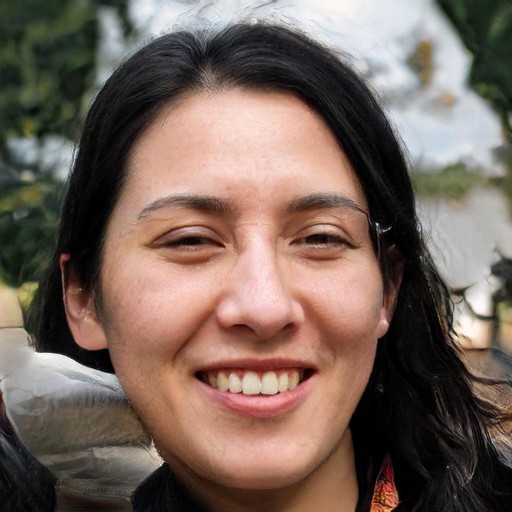
Mental health is a crucial aspect of our overall well-being and can greatly impact our quality of life. With the increasing demands of modern life and the fast-paced nature of our society, it can be challenging to prioritize our mental health and find the time and resources to address our mental health concerns. Mental health retreats offer a unique and structured environment to focus solely on our mental health and well-being, providing the space and resources to address our mental health needs and improve our overall quality of life. But is a mental health retreat right for you? In this article, we’ll explore the benefits and considerations of attending a mental health retreat, and help you determine whether this is the right option for you.
Different Types Of Mental Health Retreats
Alternative mental health retreats refer to programs or experiences that offer a non-traditional approach to mental health and wellness. Here are some alternative mental health retreats that you may consider:
- Psychedelic-assisted therapy: Psychedelic-assisted therapy involves the use of psychedelic substances, such as psilocybin (found in magic mushrooms) or LSD, in a therapeutic setting to treat a range of mental health conditions, including depression, anxiety, and PTSD.
- Nature-based retreats: Nature-based retreats offer a chance to connect with nature and engage in outdoor activities, such as hiking, camping, or kayaking, to improve mental health and well-being.
- Meditation and mindfulness retreats: Meditation and mindfulness retreats offer a structured environment to practice mindfulness and meditation techniques, helping individuals to reduce stress and improve mental well-being.
- Ayurvedic retreats: Ayurvedic retreats offer a holistic approach to mental health and wellness, incorporating Ayurvedic principles and practices, such as herbal remedies, yoga, and massage, to improve mental health and well-being.
- Art therapy retreats: Art therapy retreats offer a creative outlet for individuals to express their emotions and experiences through art, helping to improve mental health and well-being.
It’s important to note that not all alternative mental health retreats are appropriate for everyone, and some may have specific eligibility requirements or restrictions. Before participating in an alternative mental health retreat, it’s important to research the program and consult with a mental health professional to ensure that it’s a safe and appropriate option for you.
What is an ayahuasca retreat?
An ayahuasca retreat is a type of alternative mental health retreat that involves the use of the ayahuasca plant, a powerful psychoactive substance traditionally used by indigenous people in South America for spiritual and medicinal purposes.
Ayahuasca retreats typically take place in a traditional setting, such as a shamanic ceremony, and are led by a shaman or curandero who has experience with the ayahuasca plant. During the retreat, participants consume ayahuasca in a controlled and supervised environment and engage in various activities, such as meditation, chanting, and talking circles, to help integrate the ayahuasca experience.
Ayahuasca is considered a powerful tool for personal growth and self-discovery and is said to help individuals gain a deeper understanding of themselves, their relationships, and the world around them. It’s important to note that ayahuasca can have strong and potentially intense effects, and it’s not recommended for individuals with a history of mental health conditions or for those who are pregnant or breastfeeding.
Before participating in an ayahuasca retreat, it’s important to thoroughly research the program and the experience and to consult with a mental health professional to ensure that it’s a safe and appropriate option for you. Additionally, it’s important to carefully consider the legal and cultural implications of participating in an ayahuasca retreat, as the use of ayahuasca is illegal in some countries and may be subject to cultural and ethical considerations.
Final Considerations Before Booking a Mental Health Retreat
As a travel blogger, I often receive questions about the best ways to prioritize mental health while traveling. One option that has become increasingly popular in recent years is attending a mental health retreat. While mental health retreats can be a great way to improve mental well-being and address specific mental health concerns, there are several factors to consider before booking a retreat.
Here are some final considerations to keep in mind before booking a mental health retreat:
- Cost: Mental health retreats can vary in cost, and it’s important to consider your budget and financial resources when deciding whether to attend a retreat.
- Location: Location can be a factor when deciding to attend a mental health retreat, as retreats are typically offered at specific times and locations. Consider the location of the retreat and the associated travel costs when making your decision.
- Length of the retreat: Mental health retreats can vary in length, from a few days to several weeks. Consider the amount of time you have available and the level of commitment you’re willing to make when deciding on the length of the retreat.
- Type of retreat: There are many different types of mental health retreats, including nature-based, meditation and mindfulness, and ayahuasca retreats. Consider your individual needs and preferences when deciding on the type of retreat you would like to attend.
- Legal and cultural considerations: Some mental health retreats, such as ayahuasca retreats, may have legal and cultural implications. It’s important to research the laws and cultural norms associated with the type of retreat you are considering and to consult with a mental health professional for guidance.
By considering these final factors, you can make an informed decision about whether a mental health retreat is right for you and help ensure that you have a positive and enriching experience. If you have any questions or concerns, don’t hesitate to reach out to me or a mental health professional for guidance.

Kitty Ramirez is a passionate writer, explorer, and advocate for the preservation and understanding of indigenous cultures and traditional plant medicines. As the author of the blog, Kitty shares her knowledge and experiences from her many journeys across the globe, connecting her readers with the wisdom and healing practices of ancient cultures. Born and raised in a multicultural family, Kitty developed a deep curiosity about the world and its diverse cultures at a young age. Her adventurous spirit led her to embark on a life of travel, exploring the far corners of the Earth in search of transformative experiences and a deeper understanding of human connection. Throughout her travels, Kitty has had the opportunity to immerse herself in various indigenous communities, learning from their rich traditions and sacred healing practices. Her encounters with plant medicines, such as Ayahuasca, Sananga, and Rapé, have been particularly life-changing, inspiring her to share the power of these ancient remedies with a broader audience.
